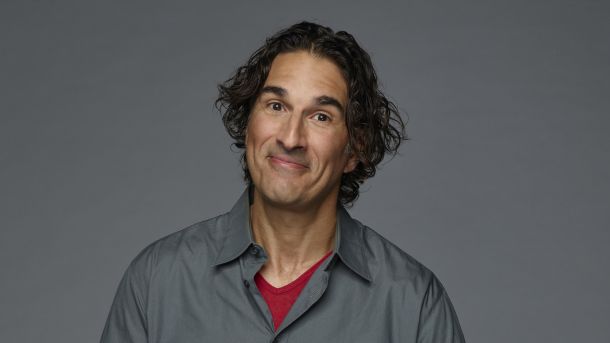Comedians have lost their stages during this extraordinary pandemic, but their voices continue to speak out and entertain online. American Masters reached out to Maria Bamford, Chris Gethard, and Gary Gulman to learn more about how they’re coping with this challenging moment, including Gulman’s list of ten activities that have helped him cope in the face of anxiety and depression.
Comedian Chris Gethard Talks About Selflessness
With his recent HBO special, “Career Suicide,” and his podcast, “Beautiful Stories from Anonymous People,” where he has conversations with anonymous callers, Chris Gethard never shies away from intimate and personal conversation. Previously, as a guest on the American Masters Podcast, Gethard said he’d “rather connect with 200 people who identify with the idea of being earnest or vulnerable or sad at times, than a football stadium full of people who don’t.” Here he talks about how he applies this worldview to our current situation, and how we can help ourselves by helping each other.
Comedian Maria Bamford on Keeping Busy
Maria Bamford never stops working. She tirelessly performs stand-up routines, comedy specials and even in private coffee sessions with strangers. On the American Masters Podcast, she said she first got into comedy as a way to “very safely connect with other human beings.” Her pace continues in our times of quarantine, where Bamford has been connecting with others through comedy shows that she hosts on private Zoom calls. She recommends staying active, engaged and entertained.
Comedian Gary Gulman Has Ten Tips for Coping With Anxiety and Depression
In his recent HBO special, “The Great Depresh,” Gary Gulman opened up about his own struggles with anxiety, depression and hospitalization. To sustain his successful recovery from these issues, Gulman put together a list that helped him regain his health and continue to thrive. Regarding his list, Gulman says, “You can do all or some. Do them every day, some days, or skip a day, but make an effort every day and forgive yourself when you don’t. While I don’t know whether these ideas will help you, I can tell you they have saved my life.” And while Gulman shares his own experience with medications, remember that you should always seek advice from your own physician before making changes.
- If you can safely spend time talking with people, you should. It is the quickest way to feel better and help you get out of your head. Studies have shown that even short interactions with people improve our moods quickly. If you feel comfortable enough, tell people how you are feeling and ask them how they are coping.
- If you are quarantined or can’t be around other people, then phone/video calls are the next best thing. I have improved my mood every day by having long, sometimes deep phone conversations with friends and family. Again, if you feel comfortable enough, tell people how you are feeling and ask them how they are coping. I don’t think you will regret opening up but it’s understandable if you are not ready.
- If you have a therapist, do phone or video sessions. I have done one a week since the middle of March. If you do not have a therapist or cannot afford one, there are many free therapy options online as thousands of generous therapists are volunteering to help people like us.
- Exercise. I know it’s hard, but it can be as effective as antidepressants. I promise myself I only have to walk briskly for 5 minutes and if I feel like it, I can stop. I never do. If you can safely, legally do it outside, great. If not, there are countless indoor workouts available online.
- If you take anti anxiety or antidepressant medication and you are not feeling ok these days, contact your prescriber. I lost a loved one early on in my recovery and started to backslide. I spoke with my psychiatrist and he increased the dosage of one of my medications and I was back to normal in less than a week. PLEASE don’t wait until you’re in crisis to reach out to them. And DON’T “white knuckle” it. That only prolongs and intensifies your suffering.
- Limit how much bad news you expose yourself to. It’s ok to stay up to speed but don’t overdo it, especially if it is increasing your anxiety.
- Do your best to avoid overdoing sugar. While it is a source of instant gratification, I find that it depresses me within a short time.
- I don’t drink alcohol or use recreational drugs. Please be aware that they can exacerbate mental illness especially in times of stress.
- Mark Twain said: “The best way to cheer yourself up is to cheer somebody else up.” I think we are wired for altruism.
- Try some meditation. I use transcendental meditation but there are many other effective meditation and mindfulness practices and breathing techniques.

